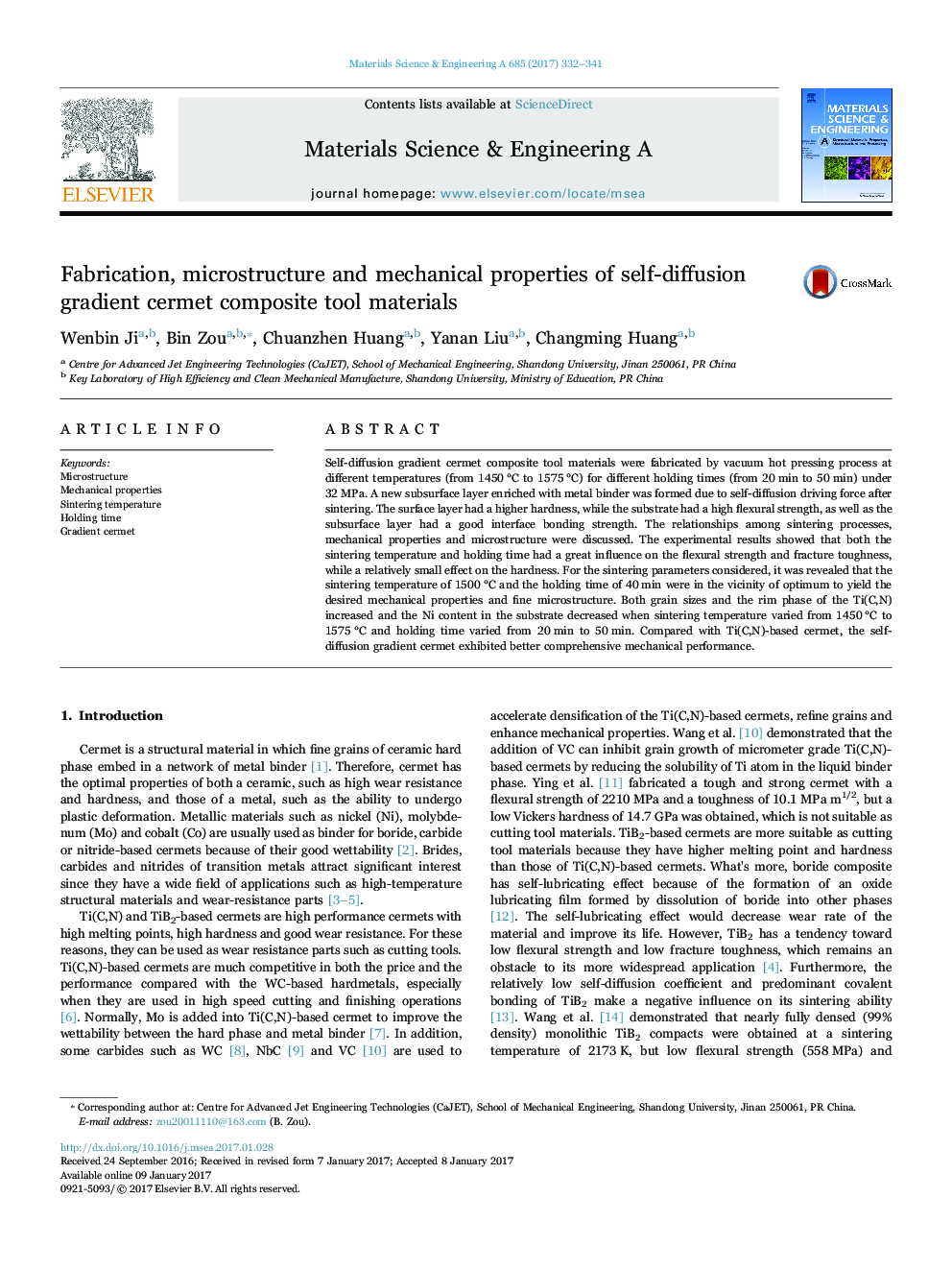| Article ID | Journal | Published Year | Pages | File Type |
|---|---|---|---|---|
| 5456151 | Materials Science and Engineering: A | 2017 | 10 Pages |
Abstract
Self-diffusion gradient cermet composite tool materials were fabricated by vacuum hot pressing process at different temperatures (from 1450 °C to 1575 °C) for different holding times (from 20 min to 50 min) under 32 MPa. A new subsurface layer enriched with metal binder was formed due to self-diffusion driving force after sintering. The surface layer had a higher hardness, while the substrate had a high flexural strength, as well as the subsurface layer had a good interface bonding strength. The relationships among sintering processes, mechanical properties and microstructure were discussed. The experimental results showed that both the sintering temperature and holding time had a great influence on the flexural strength and fracture toughness, while a relatively small effect on the hardness. For the sintering parameters considered, it was revealed that the sintering temperature of 1500 °C and the holding time of 40 min were in the vicinity of optimum to yield the desired mechanical properties and fine microstructure. Both grain sizes and the rim phase of the Ti(C,N) increased and the Ni content in the substrate decreased when sintering temperature varied from 1450 °C to 1575 °C and holding time varied from 20 min to 50 min. Compared with Ti(C,N)-based cermet, the self-diffusion gradient cermet exhibited better comprehensive mechanical performance.
Related Topics
Physical Sciences and Engineering
Materials Science
Materials Science (General)
Authors
Wenbin Ji, Bin Zou, Chuanzhen Huang, Yanan Liu, Changming Huang,
